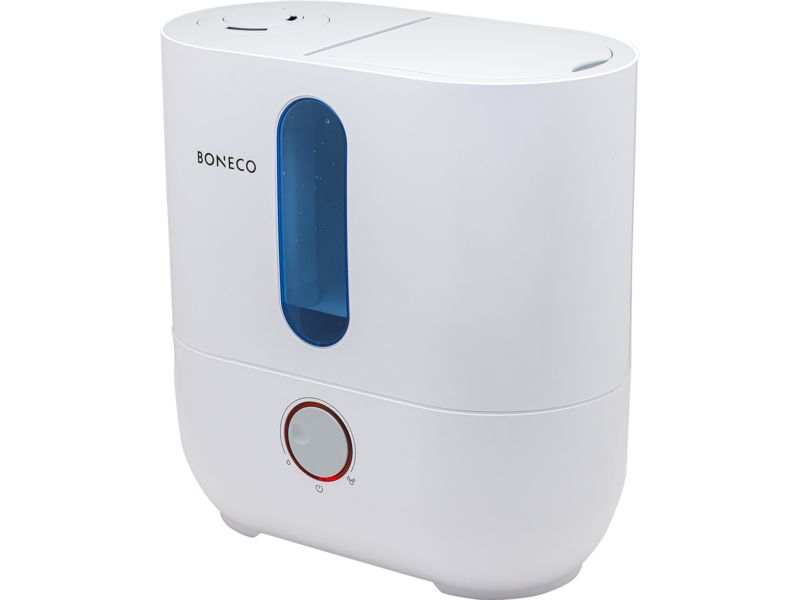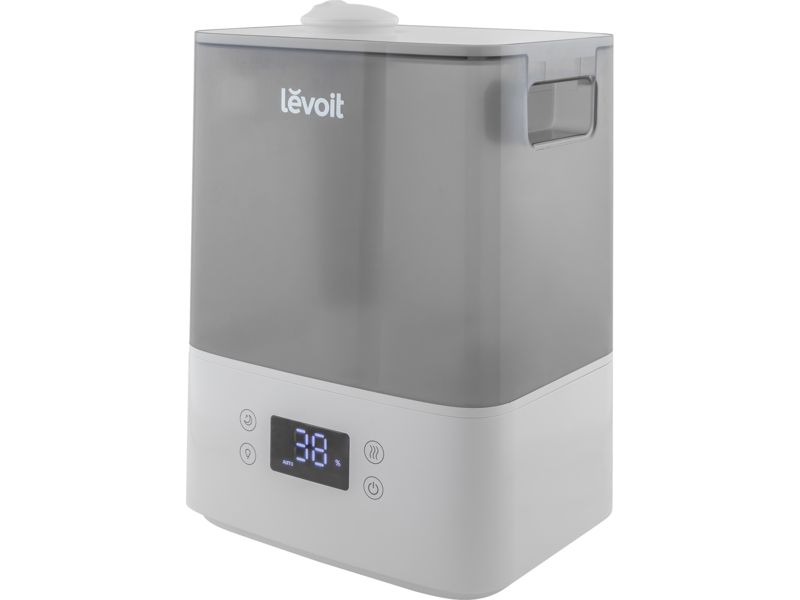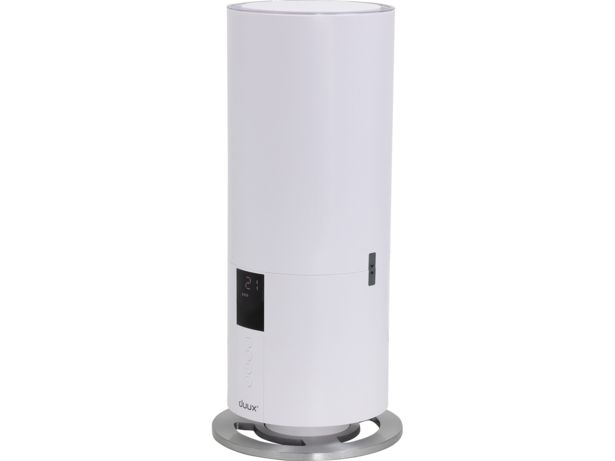By clicking a retailer link you consent to third-party cookies that track your onward journey. If you make a purchase, Which? will receive an affiliate commission, which supports our mission to be the UK's consumer champion.
How we test humidifiers

Which? tests more thoroughly than anywhere else to make sure we only recommend the very best humidifiers – and guide you away from those that don’t make the grade.
Our test results and ratings reveal big differences between the best and worst humidifiers you might buy in the shops. A good humidifier will release significantly more water into the air of your home, work quietly and do this without guzzling excess electricity.
We've rated a range of humidifiers and scores range from a Best Buy at 86% to a decidedly more mediocre 60%. Those models that score 77% or more get a Best Buy recommendation from us. Those that score below 45% get a Don't Buy label, so you know which models to avoid.
Our reviews answer the important humidifier questions, including:
- How much water does the humidifier release into the air?
- Does the humidistat function (if it has one) work effectively?
- How easy is it to use?
- How noisy is it?
- How much energy does the humidifier use?
- If it’s a smart model, is it secure?
- Should I buy it?
Head to our humidifier reviews to find the best humidifier for your needs and budget – or read on for more details of how we test.

How much water does the humidifier release into the air?
We put each humidifier on its maximum setting and run it twice for an hour, using a special climate-controlled test room. The room is set with a relative humidity level of 35% and a temperature of 27°C. We then measure the following after each test run:
- Relative humidity at the end of the test
- Air flow rate
- Volume of water used
From these two test runs, we work out the average amount of water released into the air – then we compare these results to other humidifiers to generate star ratings.
Does the humidistat function work (if it has one)?
Some humidifiers have a humidistat function (sometimes known as a hygrostat). This lets you program the humidifier to turn itself on or off at specified humidity levels known as relative humidity (RH).
To test the sensitivity and accuracy of the humidistat, we get our lab to set the humidifier to turn on at 40% RH. We place the device in a room at 22-25°C with an RH of 50% and then start decreasing the RH levels by 1-2% per minute until the humidifier switches on. The lab experts note the RH reading of the air at the humidifier inlet and record the actual RH when it switches on.
They then start increasing the RH level in the room to check when the device turns itself off.

How easy is the humidifier to use?
When buying a new humidifier, you’ll want to avoid one that’s a pain to use. Our ease-of-use assessments include looking at the instruction manual to check that it’s clear to follow and understand, checking how simple it is to use the controls, whether filling or emptying the water tank is likely to cause any problems, and whether it’s easy to move the unit around.
We also check how easy it is to clean and descale the humidifier. It’s important that humidifiers are cleaned regularly to ensure any bacteria or mould that gets trapped in the tank or mechanism is removed, because you don’t want to release water into the atmosphere and breathe it in if it has mould spores or bacteria in it.
Our ease of use tests combine to generate an overall star rating. You can use this rating to avoid any models that are likely to be a pain to use.
How noisy is the humidifier?
Our expert lab testers make two ratings on the noise of each humidifier. They measure the decibel level of the device on both the lowest and highest setting.
They then subjectively rate how noisy each humidifier is. This can range from a gentle, barely noticeable hum to a whooshing sound that sounds like a boiling kettle, or a constant dripping noise that could be very distracting.
If you're planning on using your humidifier in a room you spend plenty of time in – such as a bedroom or living room – then you can use our noise rating to make sure you pick a quiet model that won't get on your nerves.
How much energy does each humidifier use?
We measure the energy consumption of each humidifier while we’re carrying out our humidification tests. This gives us a reading of the power the humidifier uses, which we use to calculate our energy efficiency rating.
A less energy-efficient humidifier will cost you more to run, so it’s worth checking out our humidifier reviews to make sure you don’t pick an energy guzzler.

Could my smart humidifier get hacked?
Although your humidifier may seem an unlikely device for a hacker to target, if you have a 'smart' humidifier (that lets you connect it to the internet and control it via a smartphone app), it could be storing a lot of personal data about you and your home. This could be used to build a detailed picture of your daily routine – when you're usually out of the house, for example.
It could also be used as an entry point to your entire home network, potentially compromising other devices such as laptops and smartphones.
We put every smart humidifier we test through a wide range of privacy and security tests, to check for any loopholes that a hacker could exploit. These include:
Password security: Does the device have a weak default password, such as ‘admin’, that you aren’t forced to change when you first set it up? If you are able to set your own password, does the app or device make sure this can't be easily guessed by a hacker?
Updates: We check how frequently your device will be maintained with software updates. Software that’s out of date or hasn’t been maintained could leave gaps that a hacker could use to access your humidifier.
Data encryption: We check that your personal data is encrypted so it can’t be read by others. We also look at where it’s been sent, particularly if that’s outside the European Economic Area (EEA).
Decommissioning: If you want to sell your humidifier, we look at how easy it is to reset the device and wipe your data so it can’t be accessed by the new owner.
Man in the middle attacks: Our tests check whether your device is vulnerable to this kind of attack, in which a hacker can intercept information passing to and from your smart humidifier.
If we find any concerning privacy or security issues, we contact the manufacturer to further investigate. If there are significant concerns based on our evaluation, we can hold back a product from being a Best Buy until the issue is fixed by the manufacturer. For very serious issues that will not get fixed, we can automatically make the product a Don’t Buy.
Should I buy it?
All of the assessments above contribute to a total test score, which is the overall percentage figure we give to each humidifier.
Some tests are more important than others in determining just how good each humidifier is, so they count for more in our overall score. For instance, we think that humidification capacity is more important than how easy each humidifier is to use.
The total test score ignores price and is made up of the following:
- 40% humidification capacity (made up of 50% relative humidity level at end of test, 30% volume of water use, 20% air flow rate)
- 20% noise
- 20% energy efficiency
- 15% ease of use (this includes rating for cleaning and descaling)
- 5% humidistat function
A humidifier needs to earn at least 77% in our lab tests to earn our Best Buy recommendation.
Just want to know the best humidifiers to buy? Head to our list of the best humidifiers for a model that excels across all of our key tests.


